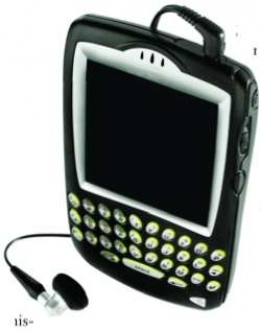BlackBerry Stand-off - DoT issues ultimatum to RIM

-
The BlackBerry saga continues. After yet another unsuccessful meeting with Canada-based service provider Research In Motion (RIM), the Department of Telecommunications (DoT) has reportedly issued an ultimatum to RIM asking it to follow the rules or shut shop in India.
According to reports, DoT is sticking to its stance, conveyed to both RIM executives and the Canadian High Commission, that unless BlackBerry provides monitoring solutions either in the form of encryption keys, or by shifting servers to India, the service will be discontinued. DoT had earlier suggested that RIM reduce the 256-bit encryption standard to a 40-bit one, which could be intercepted by the security agencies.
Understandably, in the wake of the recent Jaipur blasts, the government's security concerns have increased manifold. In light of this, it is reluctant to permit the presence of untraceable messages sent by BlackBerry phones.
RIM, however, is just as hesitant to compromise on customer privacy. Its view is that companies like Nokia, Motorola, Microsoft and Seven Networks also offer mobile email solutions in India with similar levels of encryption (Windows Mobile ActiveSync, Nokia Intellisync, Motorola Good and Seven).
According to the company, there are other technologies such as web browsers, WAP 2.0 mobile browser software, IPSec virtual private networks, pretty good privacy (PGP) and secure/multipurpose internet mail extensions (SMIME) which also use heavy encryption to secure internet-based communications. So, how would focusing only on BlackBerry address security concerns?
In a letter to its users in India, dated May 23, 2008, the company stated that it cannot provide the government with a copy of the customer's encryption key as it does not have the "master key" itself and its system does not allow "back-door" entry. According to the organisation, the security model is designed to fully assure customers that no one, including RIM, can access the data transmitted wirelessly.
DoT has, however, rejected this claim. It says that, according to the provisions of the US Communications Assistance for Law Enforcement Act, 1994, which is followed by BlackBerry, all data traffic originating even on Indian mobile networks can be traced by the Federal Communications Commission. How can the US government monitor this data without RIM opening up access to its networks?
Similarly, critics find it difficult to believe that in countries like the US and Canada, where significant funds are spent on monitoring cyberspace, BlackBerry is allowed to operate freely with no one having access to the master key.
DoT had previously suggested that RIM set up servers in India so that its data traffic can be monitored by the security agencies. This was also rejected by the Canadian company because of the high costs involved in the exercise. According to sources, RIM is of the view that if it accepts the Indian government's demands, it will have to allow the same for other countries as well.
Having promised to resolve the conflict within the next two months, RIM now has its work cut out as the fate of its 400,000 plus strong customer base in India hangs on its decision.
- Most Viewed
- Most Rated
- Most Shared
- Related Articles
- Manufacturing Hub: India emerges as a ke...
- TRAI performance indicator report for Se...
- Prashant Singhal, partner, telecom indus...
- 2G spectrum scam: continuing controversy
- An Eventful Year: Telecom highlights of ...
- Telecom Round Table: TRAI’s spectrum p...
- Manufacturing Hub: TRAI recommends indig...
- Linking Up: ITIL to merge with Ascend
- High Speed VAS - Killer applications w...
- Bharti Airtel seals deal with Zain - Zai...






